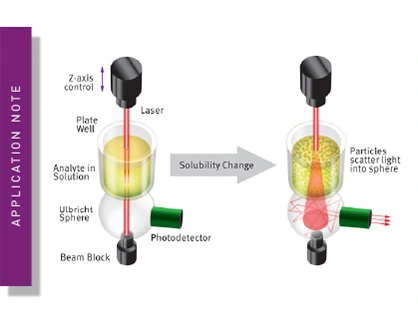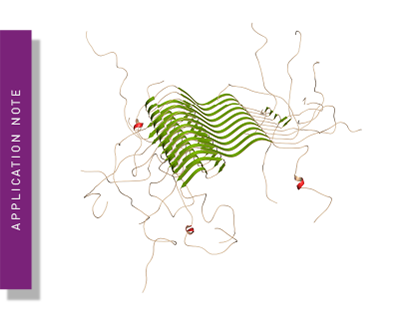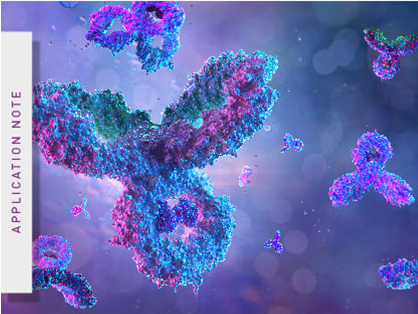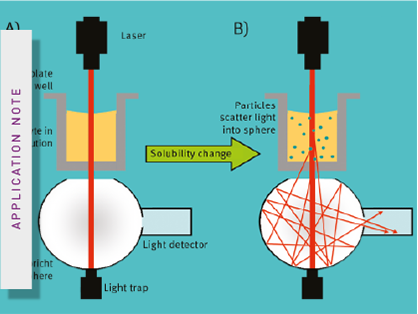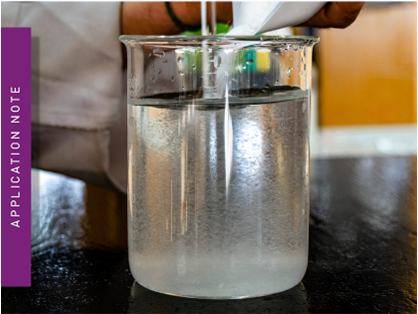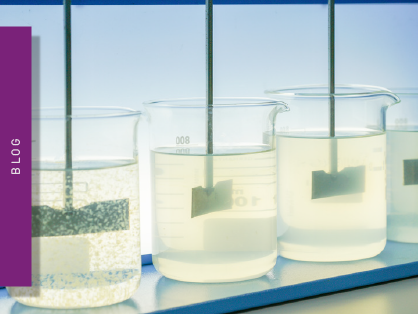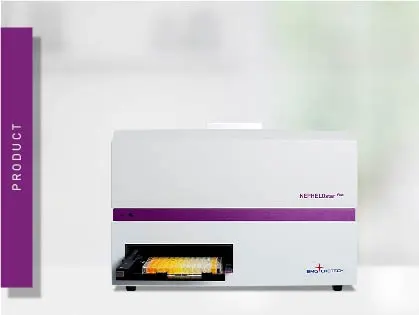Turbidity is the cloudiness or haziness of a fluid
Turbidity describes the cloudiness or haziness in a fluid due to particles like cells or other compounds and there are different methods to quantify this turbidity with microplate readers. Knowledge of the turbidity of a sample can provide valuable information for a researcher. Since turbidity measurements don´t require labelling or marking of the investigated analytes, they can be used as a simple, straightforward, and inexpensive means to tackle scientific questions. Turbidity is assessed by monitoring the transmission of light through a sample either by turbidimetry or nephelometry.
Similarly to absorbance, turbidimetry quantifies the amount of light that is transmitted through a sample. Here, the loss of intensity of the transmitted light is caused by the scattering effect of the particles in a sample. Samples with high turbidity result in higher absorbance values. This dependency is commonly employed in applications such as OD600 measurements for monitoring bacterial growth. The advanced shaking and incubation options, such as the Atmospheric Control Unit, available on BMG LABTECH microplate readers extend these testing possibilities even to more demanding bacterial strains which require specific gas and temperature conditions.
In contrast to turbidimetry, nephelometry does not measure the remaining transmitted light, but actually scattered light. This approach is best suited for samples with small particle sizes comparable to or smaller than the incident wavelength, since larger particle size will result in undesired absorption and reflection effects. Accordingly, nephelometry is ideally suited for performing solubility measurements of small particles such as drugs. This application is highlighted by the example of a fully automated kinetic solubility screen in 384-well plate format. Microplate readers provide the ideal measurement platform for the high-throughput performance of such assays - a prerequisite for scientific and industrial research. With the NEPHELOstar Plus, BMG LABTECH offers a dedicated device for this purpose.
